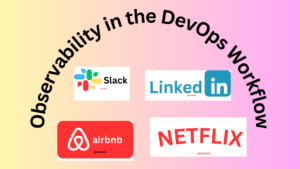Introduction
In the realm of software development, making informed decisions is crucial, whether it’s selecting the DevOps programming language, framework, or workflow. This holds true for DevOps, a set of practices designed to enhance software development and delivery. With a myriad of programming languages available, making the correct choice for your DevOps workflow becomes pivotal.
Table of DevOps Programming Language
Importance of DevOps in Software Development:
DevOps is a mindset and set of practices that fosters collaboration between development, operations, and QA teams, aiming to deliver software faster and more efficiently. By breaking down silos and automating processes, DevOps enables effective communication, leading to faster development cycles and more reliable products.
Popular DevOps Programming Languages:
1) Python:
Advantages:
- Large and Active Community: Python’s vast community ensures ample online support and facilitates the development of quality open-source software.
- Versatility and flexibility: It can be adapted to scripting, automation, web development, and even machine learning, making it an ideal choice for DevOps.Easy to Learn: Python’s simplicity and readability make it accessible, enabling DevOps teams to quickly adopt and implement it.
- Integration with Other Tools: Seamless integration with tools like Jenkins, Docker, and Kubernetes enhances its suitability for DevOps.
- Scalability: Python’s scalability makes it apt for handling large-scale automation tasks.
Popular Python DevOps Tools:
- Ansible, Salt, Fabric, and custom automation using Python scripts.
2) Java:
Advantages:
- Object-Oriented Programming: Supports modular and reusable code, reducing technical debt.
- Garbage Collection: Automatic memory management enhances stability and performance.
- Multithreading: Enables concurrent code execution for improved performance.
- Support for Distributed Applications: Built-in features for building scalable and fault-tolerant systems.
- Portability: Java applications can run on multiple systems, simplifying management and deployment.
- Security: Java’s secure nature is vital for DevOps dealing with sensitive data.
Popular Java DevOps Tools:
- Jenkins, Gradle, Maven, and JIRA for issue-tracking and project management.
3) JavaScript:
Advantages:
- Cross-platform Compatibility: Runs on various platforms, making it suitable for cross-platform DevOps tools.
- Asynchronous Programming: Supports simultaneous task execution, beneficial for I/O operations in DevOps.
- Node.js Ecosystem: Enables running JavaScript outside the browser, expanding its utility for DevOps.
- Ease of Use: Simple syntax facilitates quick automation by DevOps teams.
Popular JavaScript DevOps Tools:
- Jenkins, Grunt, Gulp, Mocha, and Selenium for automated testing.
4) Go
Advantages:
- Concurrency and Scalability: Designed for easy handling of concurrent operations and scalability.
- Fast and Efficient: Native compilation results in faster performance and efficient memory management.
- Easy to Learn: Simple syntax contributes to a gentle learning curve.
- Cross-Platform Compatibility: Code written in Go can be compiled and run on various operating systems.
- Great Community Support: Growing community ensures continuous development and support.
Popular Go DevOps Tools:
- Terraform for infrastructure as code, Kubernetes for container orchestration, and Prometheus with Grafana for monitoring.
Comparison of DevOps Programming Languages:
Flexibility:
- Python: Versatile for various tasks.
- Java: Strong for enterprise applications.
- JavaScript: Flexible, popular in web development.
- Go: Flexible, suitable for networking and distributed systems.
Learning Curve:
- Python: Easy to learn.
- Java: Moderate learning curve.
- JavaScript: Moderate learning curve.
- Go: Relatively easy to learn.
Popularity:
- Python: Consistently popular.
- Java: Widely used for years.
- JavaScript: Increasing popularity.
- Go: Growing popularity in the DevOps community.
Choosing the Right DevOps Programming Language:
- Consider project requirements for scalability, real-time processing, or high-performance computing.
- Evaluate the skills and experience of the DevOps team.
- Assess the ecosystem, community, security features, and vulnerabilities.
- Think about long-term goals and future growth of the organization.
Best practices for choosing a DevOps programming language:
- Research and compare languages based on specific needs.
- Test languages with a small project before commitment.
- Involve the DevOps team in decision-making.
- Consider new or less popular languages for unique advantages.
Case Studies of Successful DevOps Implementations:
- Netflix (Java): Leveraging Java’s scalability, Netflix handles millions of users and delivers high-quality streaming services.
- Google (Go): Google uses Go for backend services and cloud tools, benefiting from its simplicity, fast compilation, and concurrency.
- Spotify (Python): Python’s simplicity and versatility empower Spotify in rapidly developing and deploying new features and services.
- Airbnb (JavaScript): Airbnb utilizes JavaScript for both frontend and backend development, creating responsive and scalable applications.
Conclusion
In conclusion, DevOps is a methodology aimed at enhancing collaboration and efficiency in software development. Python, Java, JavaScript, and Go are prominent DevOps programming languages, each with its strengths and ideal use cases. Proper research, testing, and understanding of project requirements are essential for making the right choice. Case studies of successful implementations by companies like Netflix, Google, Spotify, and Airbnb provide valuable insights into the benefits of selecting the appropriate DevOps programming language for specific use cases.



